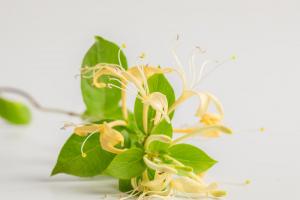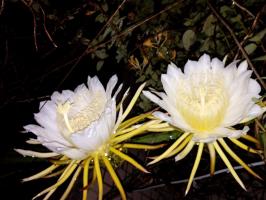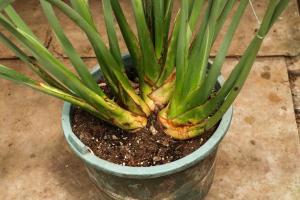Introduction
Watering your house plants regularly is essential to keep them healthy and vibrant. However, when it comes to watering, many people overlook the type of water they use. While most homeowners rely on tap water, which is considered hard water, others prefer to use soft water, fearing that hard water can harm their plants. This has ignited the debate, is it okay to water house plants with soft water?
What is soft water?
Soft water contains low levels of dissolved minerals, particularly magnesium and calcium, which are present in hard water. The reason for this is that soft water goes through the process of water softening, which involves the removal of these minerals in the water treatment plant. Soft water usually comes from a well or a water softening system installed in the home.
Benefits and disadvantages of using soft water on house plants
Soft water has several advantages when used to water house plants. Since it contains no dissolved minerals, soft water will not leave mineral deposits on the soil, making the pots cleaner, and thus reducing the risk of root rot. In addition, soft water is usually neutral in pH, which will not change the pH level of the soil or create a toxic environment for the plants.
However, there are some disadvantages to using soft water for house plants. One major disadvantage is that soft water lacks essential minerals that are beneficial to plant growth, such as calcium and magnesium, which are usually present in hard water in limited amounts. Lack of these minerals can lead to stunted or weak growth, yellowed leaves, and, in severe cases, plant death. Another disadvantage is that soft water can be harmful to plants that prefer an acidic environment, such as azaleas, camellias, and hydrangeas.
How to use soft water to water house plants
If you decide to use soft water to water your house plants, there are a few things you need to keep in mind. Firstly, you must ensure that the soft water is free of sodium, which can be harmful to plants. Secondly, you need to replenish the missing minerals by fertilizing the plants regularly with a balanced fertilizer that contains calcium and magnesium. Thirdly, you can adjust the pH level of the water by adding a pH adjuster or by mixing it with hard water to achieve a balance that suits your plants.
Conclusion
In conclusion, using soft water to water house plants is acceptable, as long as you maintain a proper balance of minerals and pH level. Soft water can be beneficial in reducing the risk of soil build-up and creating a neutral environment for plant growth. However, it is crucial to understand the potential drawbacks and take measures to mitigate them, such as regular fertilization and pH adjustment. Ultimately, the decision depends on your preference and the specific needs of your house plants.

 how many times do yo...
how many times do yo... how many planted tre...
how many planted tre... how many pine trees ...
how many pine trees ... how many pecan trees...
how many pecan trees... how many plants comp...
how many plants comp... how many plants can ...
how many plants can ... how many plants and ...
how many plants and ... how many pepper plan...
how many pepper plan...

































